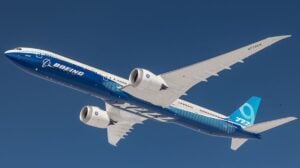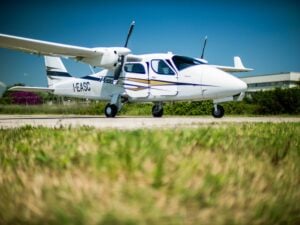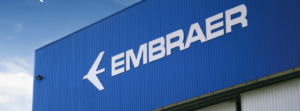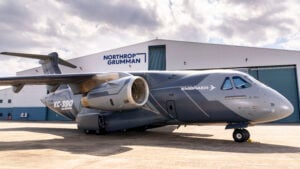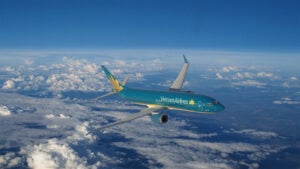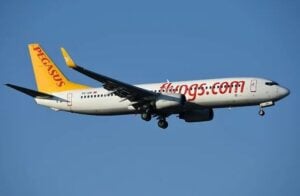Spirit AeroSystems Holdings (Spirit) has reported its financial results for the second quarter of 2024. Spirit’s revenue in Q2 2024 increased from the same period in 2023, primarily due to higher production activities on most commercial programmes and increased Defence and Space revenues, partially offset by lower production volume on the Boeing 737 programme. Overall deliveries decreased to 336 shipsets during Q2 2024 compared to 342 shipsets in the same period of 2023.
Spirit’s backlog at the end of Q2 2024 was approximately US$48 billion, including work packages on all commercial platforms in the Airbus and Boeing backlog.
Commercial segment revenue in Q2 2024 increased from the same period of the prior year, mainly due to higher production across most programmes, partially offset by lower production volume on the Boeing 737 programme. Operating margin for Q2 2024 decreased compared to Q2 2023, primarily driven by higher changes in estimates. In Q2 2024, changes in estimates for the segment included US$212 million of net forward losses and US$49 million of unfavourable cumulative catch-up adjustments. Additionally, during Q2 2024, the Commercial segment included excess capacity costs of US$44 million. In comparison, during Q2 2023, the segment recognised US$102 million of net forward losses, US$16 million of unfavourable cumulative catch-up adjustments, excess capacity costs of $52 million, and strike disruption charges of US$7 million.
Defence & Space segment revenue in Q2 2024 increased from the same period of the prior year, mainly due to higher activity on the Sikorsky CH-53K programme, partially offset by lower production on the Boeing P-8 programme. Operating margin for Q2 2024 increased compared to Q2 2023, primarily due to higher activities on the Sikorsky CH-53K, partially offset by higher costs on the Boeing P-8 programme.
Aftermarket segment revenue in Q2 2024 increased from the same period of the prior year, primarily due to higher spare part sales. Operating margin in Q2 2024 decreased compared to Q2 2023, mainly due to sales mix.
Operating loss for the second quarter of 2024 was higher compared to the same period in 2023, primarily driven by the more unfavourable changes in estimates during the current period.
Total change in estimates in the second quarter of 2024 included net forward losses of US$214 million and unfavourable cumulative catch-up adjustments for periods prior to the second quarter of US$52 million. The Boeing 787 programme drove US$173 million of forward losses, primarily due to schedule changes, as disclosed as a subsequent event in the first quarter of 2024, as well as higher estimated supply chain costs. The Airbus A220 programme recognised US$25 million of forward losses, primarily resulting from production performance and supply chain cost growth. Unfavourable cumulative catch-up adjustments were primarily related to the Boeing 737 and 777 programmes of US$28 million and US$19 million, respectively.
The Boeing 737 programme cumulative catch-up adjustments were driven by the delivery delays related to the product verification system as well as a higher cost profile maintained for a planned rate increase that has been delayed. The Boeing 777 programme cumulative catch-up adjustments were primarily driven by schedule changes and higher production cost estimates. Excess capacity costs during the second quarter of 2024 were US$46 million. In comparison, during the second quarter of 2023, Spirit recognised US$105 million of net forward losses, US$22 million of unfavourable cumulative catch-up adjustments, and excess capacity costs of US$53 million.




